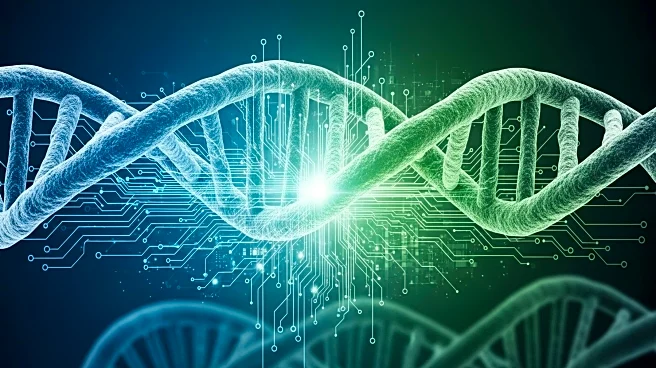What's Happening?
A team of European researchers has utilized advanced Artificial Intelligence tools to explore the genetic origins of Papua New Guineans. The study reveals that Papua New Guineans are closely related to other Asian populations, sharing a common ancestry from the 'Out of Africa' event that also led to the emergence of other non-African groups. Despite their distinct physical appearance, which resembles Sub-Saharan African populations, genetic analysis indicates a closer link to Asian groups. The study challenges previous theories suggesting a separate descent for Papua New Guineans and highlights the role of natural selection in shaping their unique features. The research also notes the presence of Denisovan DNA in the Papua New Guinean genome, suggesting historical mixing with this ancient hominin group.
Why It's Important?
The findings have significant implications for understanding human migration and evolution. By clarifying the genetic origins of Papua New Guineans, the study contributes to the broader narrative of human ancestry and migration patterns. It challenges existing hypotheses about early human migrations and provides insights into the complex demographic history of isolated populations. The presence of Denisovan DNA further enriches the understanding of human evolution, highlighting the interactions between different hominin groups. This research could influence future studies in anthropology, genetics, and evolutionary biology, offering a more nuanced view of human diversity and adaptation.
What's Next?
Further research is needed to explore the evolutionary adaptations that have shaped the physical characteristics of Papua New Guineans. Scientists may conduct additional studies to investigate the impact of tropical climates on natural selection and genetic diversity. The study also opens avenues for examining other isolated populations to understand their unique demographic histories. Researchers might focus on the implications of population bottlenecks and their effects on genetic diversity. The findings could lead to more comprehensive models of human migration and evolution, incorporating advanced genomic data and AI-powered analysis.
Beyond the Headlines
The study raises ethical considerations regarding the use of AI in genetic research, particularly in understanding human diversity. It highlights the importance of preserving the cultural heritage and identity of indigenous populations while conducting scientific studies. The research also underscores the need for collaboration between scientists and local communities to ensure respectful and informed exploration of genetic origins. Long-term, the study may influence public policy on genetic research and the protection of indigenous rights, fostering a balance between scientific advancement and cultural preservation.









